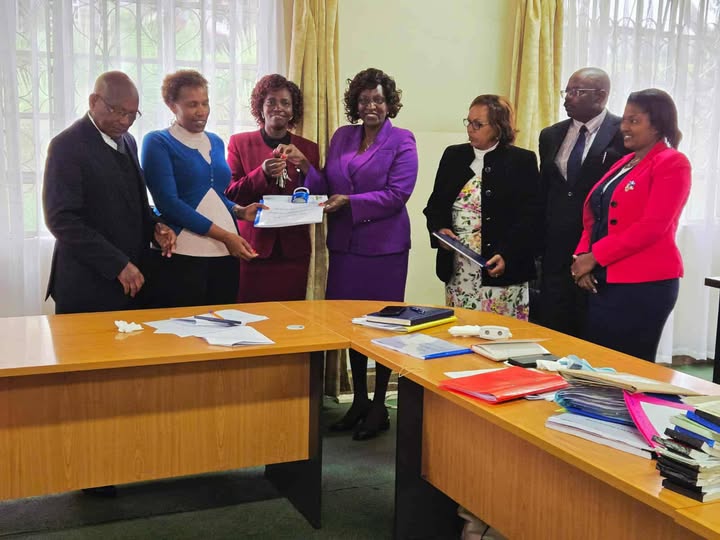Sponsors play a significant role in supporting schools, particularly in areas where resources are limited. However, it is essential that they stick to their mandate as envisaged in Kenyan educational law.
In Kenya, the role of sponsors in the education sector is defined by the Education Act. Sponsors, often churches or organizations, have specific responsibilities and rights in managing schools.
Primarily, sponsors are responsible for providing spiritual guidance and oversight in the schools they sponsor. They also participate in school management through representation on the Board of Governors. The sponsor proposes the chairman of the school board, who is then ratified by the Minister of Education. However, the Education Act has since reduced the number of board members that sponsors can appoint from four to three.
Importantly, sponsors are no longer involved in the appointment of school principals or board chairmen, as per the 2013 Education Act. They are instead mandated to hire and pay school chaplains, a responsibility that previously fell to the school board.
The role of sponsors has evolved over time, passing through three distinct epochs:
1844–1963: Sponsors acted as donors and managers of education.
1964–2000: Sponsors focused on spiritual and moral authority in schools.
2004–2017: Sponsors became investors in education, though with reduced roles in management.
ALSO READ;
Rev. Edith Koech takes over as new Chief Principal of Kenya High School
Currently, their diminishing role has led to challenges such as lack of accountability, where school heads may run institutions without adequate oversight. Sponsors are therefore expected to help mitigate misuse of funds and poor management, ensuring schools remain transparent and well-governed.
Disputes between sponsors and school administrators sometimes arise due to unclear roles and responsibilities. To address this, the Basic Education Act of 2013 and other legal frameworks define the responsibilities of sponsors more clearly.
These responsibilities include:
- Providing financial support for building classrooms, libraries, laboratories, and other facilities.
- Offering scholarships and financial assistance to needy students, thereby increasing access to education.
- Providing learning resources such as textbooks, educational software, and teaching aids.
- Donating technology and equipment, such as computers, tablets, and scientific instruments.
- Supporting teacher training and professional development to enhance teaching quality.
- Establishing mentorship programs for students to guide them academically and in career development.
- Promoting community engagement and development through schools.
- Facilitating partnerships between schools and organizations such as businesses, NGOs, and government agencies.
- Supporting schools in monitoring and evaluation to ensure accountability and transparency.
- Requesting regular reports and feedback from schools on the use of funds and resources.
ALSO READ;
TSC secretariat staff get three-year window to meet new promotion rules
By fulfilling these roles, sponsors help schools improve education quality, expand access, and foster the development of students and communities.
Several churches and organizations remain major sponsors in Kenya’s education system:
Africa Inland Church (AIC) sponsors over 3,500 primary and secondary schools, making it one of the largest school sponsors.
Roman Catholic Church, Kenya’s largest Christian denomination with over 9 million followers, has established numerous schools and hospitals.
Anglican Church of Kenya (ACK), the second-largest denomination with over 4 million members, sponsors several schools and community projects.
Presbyterian Church of East Africa (PCEA), with over 1 million members, is well-known for its emphasis on education and has established several schools and colleges.
Full Gospel Churches of Kenya, established in 1949, has expanded to include education and social initiatives alongside evangelism.
Pentecostal Assemblies of God (PAG) also has a significant presence in education, health, and training institutions.
ALSO READ;
CDF supports needy students and central to educational progress, says Kiambu MP
Other notable sponsors include:
- Aga Khan Foundation, which runs several schools and offers postgraduate scholarships.
- Vanessa Grant Trust, supporting infrastructural development and staff training in rural schools.
- Uweza Foundation, which provides scholarships and mentorship for learners from low-income families.
- Higher Education Loans Board (HELB), a state corporation offering bursaries and loans to students in higher institutions.
- Mastercard Foundation, offering scholarships to disadvantaged students.
- Equity Bank, which funds exemplary students for undergraduate studies both locally and abroad.
Notably, some chief executive officers have observed that despite efforts to assist learners, identifying genuine cases of need remains a challenge.
Nonetheless, sponsors have greatly revolutionized education in Kenya and made a lasting impact on the country’s education landscape.
By Hillary Muhalya
You can also follow our social media pages on Twitter: Education News KE and Facebook: Education News Newspaper for timely updates.
>>> Click here to stay up-to-date with trending regional stories
>>> Click here to read more informed opinions on the country’s education landscape





